
|
| |
|
|
|
|
 |
|
|
From Defeat to Victory
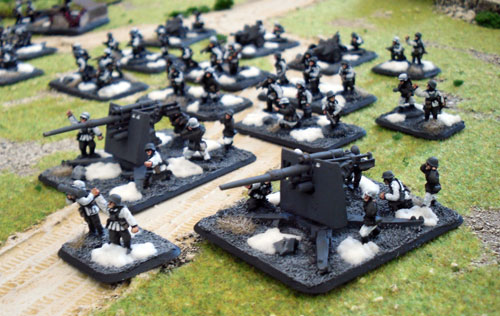 |
From Defeat to Victory
By Richard Steer
I had been playing Flames Of War for about six months. I had put a lot of effort into painting my troops and was proud of how they looked. I was beginning to learn a few tricks from my more experienced opponents. I was enjoying my gaming, but there was always one frustration at the back of my mind: I had never won a game. I managed to come close once or twice, but seemed to have an amazing ability to snatch defeat from the jaws of victory time after time. It hung over me like a dark cloud.
|
| The lowest point came at the New Zealand national tournament, NatCon. I
played seven games, managed to win one through luck more than anything
else, and got thrashed in all the rest. I had a great time and met a lot
of awesome people, but it’s kind of demoralising to spend a weekend
getting ground into the dust again and again. After the last game of the
tournament a couple of experienced gamers
took me to one side and we had a chat about what I was doing right and
what I could be doing better. |
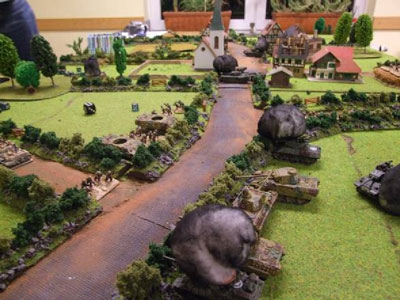 |
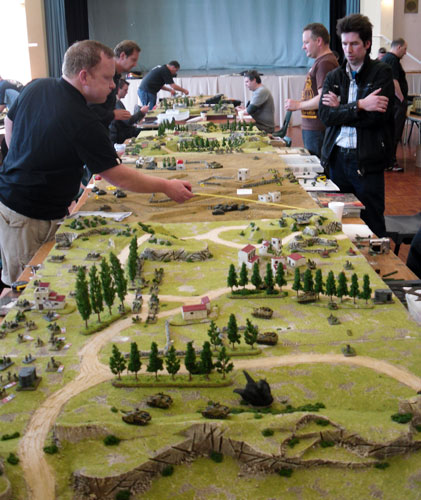 |
Something that they really drove home was the need to make a plan. I
knew I should be making a plan before each game, but didn’t quite know
how to go about it. Without a plan, my attacks lacked direction, my
units were incapable of working together and any opponent with better
coordination was bound to beat me. Before a game I now have a think
about what the enemy’s plan could be, draw a quick sketch map of the
table, then write a couple of notes for each of my platoons describing
what their task for the game is. This has improved my timing and I’m
more focused on the task at hand. The other advantage of writing stuff
down is that I’m less likely to forget things! |
| Another area I was falling down in was
concentration of firepower.
Concentration of firepower is deciding which target is the greatest
threat, and shooting at it enough to make sure that it is killed. I was
spreading my shooting across every target I could see, and while I was
killing teams, the problem was I wasn’t killing platoons, and victory
points in Flames of War are dependant on how many platoons are
destroyed. |
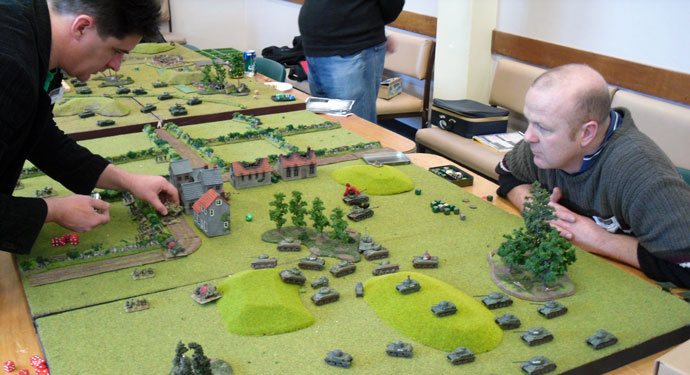 |
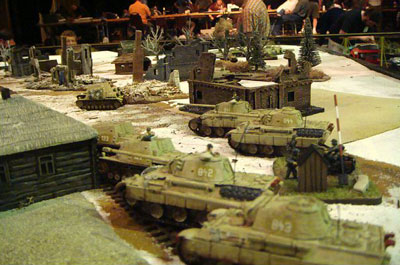 |
When I started concentrating my firepower better,
I found that my shooting became much more effective. I realised that
the more dice I threw, the more likely I was to hit something. The more
hits I scored, the more saves the enemy was likely to fail, and if all
those failed saves are from a single platoon, the more likely that unit
is to fall below half strength and flee the battle.
|
The third major point was the need to keep a reserve. Without a reserve, all my units were tied up in the front line and I couldn’t react to any sudden success the enemy had. I learnt that if I held one platoon out of the front line then a breakthrough wouldn’t be as catastrophic. An example how this idea worked was in one game when one of my platoons was overrun by a Russian SMG company.
|
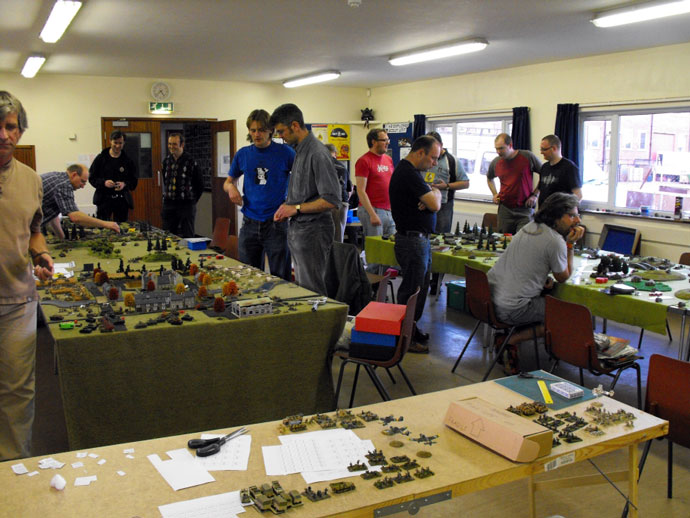
|
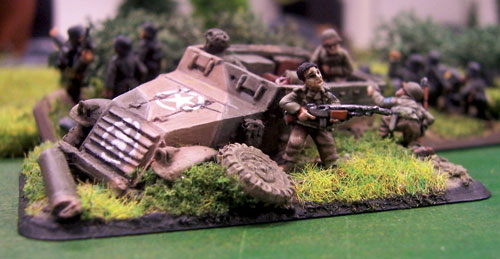 |
Next turn I hit the SMGs with everything I had to
make sure I pinned and weakened them, then assaulted the survivors with
my reserve and succeeded in stopping the attack in its tracks. If the
reserve hadn’t been there, the Russians would have been free to turn
sideways and steamroll over my other front line platoons, and that would
have been game over. |
To summarise, three key areas of my game needed improving: planning,
concentration of firepower and keeping a reserve. Even after I knew what
the major problems were, it took time to fix them and I lost several
more games in the process, but when it all came together I suddenly
started winning! Of course, I’m still learning and I do still get things
wrong and lose, but at least I have won and know I can do it again. The
cloud has lifted.
~ Richard.
|
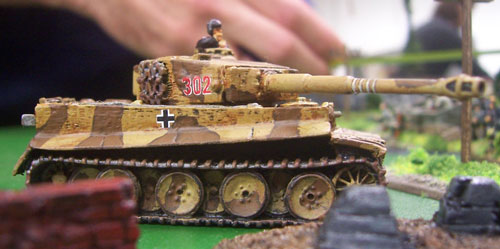
|
|
|
|